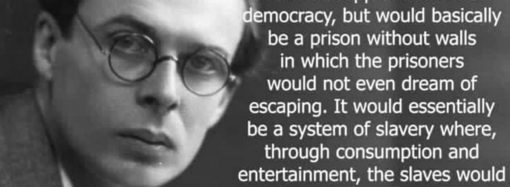Let women then give up their claim to an equality with the men, and be content with the humble station which Nature has allotted them.

CONCLUSION
From what I have hitherto said it must appear,
To all who have the least degree of understanding, that if the merit of women be weighed by the end of their production, and the circumstances attending it, by their natural capacity, and the practice they have applied it to in all ages; by the living variety of instances of their folly, inconsistency, impotence in good, and propensity to evil, they are not only wide of the perfection of man, but even almost infinitely beneath him. So that far from having any just title, or even plausible presence, to claim an equality of power, dignity and esteem with him; the very privileges they enjoy can only be looked upon as so many instances of his generosity to them.
If we trace their conduct through every age, and consider it in all lights, we shall find them everywhere, even in their seeming differences, the same; emptily vain, foolishly conceited, and ambitiously groveling; at once covetous and extravagant to extremes; restless even in indolence, and false in their very fits of fondness; in their hatred cruel, in their love lascivious, and then most treacherous, when most industrious to show sincerity. What else do we find in women but the bane of friendship, an inevitable pain, a native temptation, a desirable calamity, a domestic snare, a flattering mischief, the very essence of evil, under the semblance of good? If then there is a heinous crime in dismissing them when ours, it must surely be owned as heavy grievance to be forced to retain them, though uncertain of their being only ours. And yet such the hapless dilemma man is reduced to, when tied to that frail toy of woman; in danger of becoming an adulterer if he dismisses her, or of harbouring an adulteress if he keeps her.
Nevertheless it must be owned, that woman, though essentially an evil,
Is a necessary one: but then so much the more burdensome is she for being so; since what is most endearing in her makes our danger the more imminent, and our only security is in what must render her intolerable. The man, who weds a beautiful woman, measures a mark for every libertine’s lechery. But he who marries a plain one, marries lechery itself. The former will find it an arduous task to preserve inviolated his private property in the object of public lust. And how wretched must be the fate of the latter, to be confined to the society of one, whom none else would condescend to couple with! However upon the whole there may be, perhaps, much less misery annexed to the possession of a homely wife, than to the difficulty of keeping a handsome one chaste. But still it is plain there is misery in both.
Well then might Cato say, that “but for woman the world would be without woe, and the celestial beings would delight to mingle their conversation with ours.” It is well remarked by a learned author that Cato spoke not by guess but from his own fatal experience. And who better qualified to give a proper idea of the artifices of those common mischiefs, than one who was himself the dupe of them? Their vices and follies alike are carried to such an excess, that nothing could make them credible but conviction; and nothing but experience could justify the belief of it in one who were almost conscious of the reality. But Cato had the trial, and to his sorrow found the fair, delusive flower of venus like the soft, silky, touch-ensnaring rose, beneath whose beauteous baneful blossom lies many a pointed thorn.
But I forget, Cato is no oracle with Sophia. Nor would he be such with me, was he particular in his opinion of the fair-sex. But surely all can never be mistaken. And do not all, who bear the character of wise, agree, that women are the shuttle-cocks of vice and folly, impotence and eagerness; the dupes of others passions, and jilted by their own. Do not all writers, sacred and profane, without comparing notes, combine in painting them false as they are fair, and silly as they are sweet; artful in modest guise, and impudent when lewd; treacherous, ambitious, slaves of avarice, the foes of reason, and never friends to thought, but when they think on mischief. If Seneca may be believed, “a woman never muses by herself, but she is musing on some wickedness.” And if we discredit him, we must discredit all who have ever stooped to write about them. For all are of his mind, and all consider them at best as flattering, pleasing, desirable evils. Democritus was so convinced of this, that, being questioned, why he who was himself so big had married a wife so little, he answered, Methinks, says he, as it is, I have chosen too big a one, when all I had to choose was evil. But Protagoras went farther still, no evil according to him exceeds that Evil, Woman. What made him give his daughter in marriage to his mortal enemy? Ask him, and take his reason from himself, I gave her to him, says he, because I could give him nothing worse.
I should never have done were I to give a list of all the sages in every age who have thought like them.
But what occasion have we for the authority of others to confirm a truth our own eyes are daily witnesses to? Let us look round the female world; what shall we find but weakness of head and corruption of heart, intolerable trifling, or destructive industry? A giddy tribe of useless things, made up of noise and nonsense, envy, malice, impertinence, and show? Mere murderers of time, averse to all that’s good, and prone to all that’s naught; proud only of what serves to humble them, and never humble but when ’tis base to be so; and but a fairer kind of fiends disguised in angels dresses, whose actions are the best antidote to the poison of their charms? Here their insatiable incontinence renders their beauty shocking; there their modesty is meant a cover to their own lust and an incentive to yours. In one house, you see a pretty, foolish, lifeless, moving statue; in another, a homely, bookish, pert prating Doctress, a retailer of cross-cross sentences, whose brain is a mere lottery-wheel of sense and nonsense drawn alike by chance, five hundred blanks to one prize, of no worth when examined. In a third you meet with a housewifely shrew, a sober slut, an ignorant cypher, a gossiping politician, or a learned slattern. In a fourth a litigious cheat, a virago, bully, or phantom frighted at the crow of a cock. And everywhere you are sure to find an inconsistent set of fickle creatures, never for a minute themselves, but when most unlike us and nearest being unlike themselves; and never steady in anything but folly, vice and fickleness.
How unlike are these pretty, little-more-than-nothings, to that lordly creature, whose superiority of merit, as well as power and prerogative, their impotent ambition to be like him might alone suffice to convince them of, had they but one degree of understanding more than they have! Man, created by Nature to rule, was endowed with a soul equal to the task. His body is strong, his mind vigorous, and his heart resolute; his understanding is fitted for the most sublime speculations, and his person for the most hardy and important exercises. He can dive into the inmost secrets of Nature without losing himself; and has art enough to copy her noblest works, and almost to excel the great Original. He wants neither fancy to invent, nor Genius to contrive. With quickness to apprehend and memory to retain, he haS judgment to discern, and can by distinguishing and comparing different ideas form the greatest of designs. Happy in a Genius for the most glorious enterprises he has both courage and conduct sufficient to execute them. For he is not only qualified by his intellectual capacity to be greatly wise, but naturally prompted to be truly good. In short, virtue and wisdom are the epitome of his character, where woman interferes not to corrupt it. If there are a few degenerate creatures, who answer not this character, they are such only as by conversing with womankind, putting on their foibles, and affecting to be like them, degrade themselves of manhood, commence intellectual eunuchs, and, though they are, deserve no more to be reputed of the same sex with us. But still the bulk of men were designed by Nature to be both greatly wise and eminently good. And there are as many instances to prove these characteristics in the men, as there are in women to prove their want of them, and natural incapacity for them.
How many men might we not point out,
Whom but to name would force that daring sex to own the little claim they have to equal merit with that noble creature, though all the female train should club their several worths to match it. To know what man is capable of being, examine what he really is when perfect. And to gain a true idea of all men’s real merit, view any man in whom all manly virtues are blended.
Philanthropus is such, admired, esteemed, beloved by all who know him, and loving all mankind.
Majestic in his person, of a lively understanding, and of manners gracious, affable and sincere; he is ever cheerful, never light; ever present to his company, never absent to himself. His voice is all harmony, his words all sense, his actions answer to his mien, and what he looks he is; discreetly daring, modest with becoming boldness, sprightily sedate, easy without levity, solid without solemnity, good by approved principle, and wise by parts anticipating experience. His virtue not stiffened by austerity, nor his wisdom foiled by any fondness of showing it. Never elated by prosperity, adversity cannot depress him; always serene in every vicissitude of life, not from insensibility, but from thought, resolution, and conscious worth. Grateful to his maker he has nothing so much at heart as the true interests of religion, which he is incessantly studious to cultivate in himself, and frequently happy enough to promote in others. His unblemished conduct proves him the Christian he professes to be; In him faith free from bigotry and superstition, zeal according to knowledge, Godliness without ostentation or severity, and devotion without enthusiasm, give piety such an amiable aspect, as makes the practice of it inviting. Thus blessed, thus happy, thus worthy to be so, so far is he from taking pride in any advantages he possesses above others, that he looks on them as the common property of all. Nor is he more anxious to communicate those advantages to others, than sure to share in their miseries by a generous fellow-feeling of their misfortunes. The widow has a protector in him, the orphan a father; the wretched find him their relief, and all who are in distress or under oppression, their advocate, support, and defence. He never thinks himself so rich as when a poor man shares with him his fortune. His endeavours to surpass others in goodness, never hinder him from labouring to make them even better than himself. And he never approves his own wisdom but when it helps him to make others wise, or to discover some excellence in them. The good are ever sure of his esteem, the sage of his admiration, and both of his love and praise. For no merit escapes his acknowledgment which reaches his knowledge, as no demerit incurs his scorn or hatred, though it cannot elude his penetration. To the gift of knowing how to applaud the deserving, without putting them out of countenance, he joins the talent of reasoning or laughing others out of their follies and foibles, without exposing or offending them; ever sure to gain a friend by the worth he rewards, never in danger of making an enemy by the vice he discountenances. The foolish he is industrious to direct, and is indefatigable as well as informing the ignorant as in reforming the wicked. Those, whom he can better, he always encourages; and those whom he cannot, he pities, but never condemns; not more liberal of just commendation than sparing of deserved censure. He is just to the nicest point of honour, and sets no other bounds to benevolence than prudence prefixes. Glad of advice, he is not forward to give it, not conceited enough to offer it unasked but where ’tis a charity to do so. And when he does give it, his counsels are honest, open, and persuasive, the torch of reason and the flame of friendship; his encomiums are pathetic, emulative and insinuating, the spur of virtue, though the curb of pride; and his reproofs, gentle yet piercing; calm but not resolute; serious though soothing; candid and yet so piquing, that every haughtiness must stoop, and obstinacy itself submit to rule. Skilled in every science, versed in many languages, and master of every elegance, his learning serves not to make him arrogant, nor his eloquence to make him talkative. In a word, such judgment, propriety, energy, dignity and grace combine to dictate all he says, and inspire all he does, that envy itself considers him as a finished pattern of manly perfection; a nice Christian, a complete gentleman, a useful friend, a prudent parent, and an indulgent husband; Good even where goodness seems fruitless; and wise even in a choice where wisdom has but the left hand of chance, the election of a wife.
Angelica, the fair the exquisitely fair Angelica, is the blessed object of this happy choice.
In her person, oh! She is all beauty, softness, ease, and delicacy. Nature, in a strife of grandeur, fashioned her to show how far the charms of ocular perfection could be carried. And then she is good beyond what fancy can conceit of woman, and wise enough to copy from her husband such accomplishments as may be molded into female virtues. Yet her virtue neither renders her formal nor censorious; and her sense but serves to make her easily reserved and modestly free. Her only pride is to enrich her mind with such useful knowledge as may complete her a perfect mother, wise and friend. Without the ambition to appear learned, she has gained a sufficient tincture of the sciences to make herself an agreeable companion to her husband and all who converse with her. Though whenever she treats of learning, ’tis in a manner which shows rather a desire of receiving information than a consciousness of being able to afford it. The books she reads are such only as can assist her judgment and refine her morals, the choice of which she ever depends upon her husband for: and them she never suffers to break in upon the essential duties of her station; for study is only the occupation of her leisure hours, not the business of life. Her chief care is to please and be useful to her Lord; to nurse her children, to educate them in virtue, and to instill into them by her precepts and example an early aversion to vice, folly, idleness and trifling. And the next to this is the economy and government of her family; in which, with sensible subordination to her husband, she is absolute mistress, without being imperious; frugal without meanness, hospitable without prodigality, and neat without affectation. She can manage her domestic affairs without neglecting the service of her friends. Ever assiduous to oblige, she has the art of doing it without making an obligation a burden. The poor, the sick, the imprisoned, and distressed, all look upon her as a common mother; and that truly Christian piety, which gives life to all she does or thinks, inspires her with means to assist them all, which she does without the least exterior ostentation or inward vanity. Thus free from every vice she is deficient in no one commendable quality her sex can be capable of, but that of forgiving enemies; which she cannot practise for want of foes to forgive. For, respectful to those above her, courteous to her equals, affable to her dependents, and beneficent to all, she reigns the object of just admiration, respect, and esteem in every heart, and forces envy itself to wish for her friendship.
Such is Angelica, and such the height of womanish perfection, as near to that of man, as women’s lovely faces in a glass appear to them. All that is wanting is the life, the truth, the reality. Still lifeless and feeble as their merit is, compared with manly worth, how happy might not man esteem himself, if each Philanthropus among mankind had an Angelica to match with. But such a one is too delicate a work for Nature to produce in every century. ‘Tis like a phoenix, the prodigy of an age; and such a miracle of completeness but serves to make the rest of the sex more contemptible by comparison, as Michael painted with the rebel Angels shows the fiends more frightful.
Let women then give up their claim to an equality with the men, and be content with the humble station which Nature has allotted them.
If their souls are great enough to aspire to our esteem, let them learn from Angelica to be more deserving and less assuming. And since neither their capacity for head nor their dispositions of heart can lift them to emulate, let them apply their little talents at least to imitate us: That pleased with the pretty mimics of ourselves, we may venture to place them in our bosoms without fear of cherishing a viper there. Let them remember that man holds his superiority over them by a charter from Nature in his very production. And nothing can justify their calling that charter into question till they are able to prove their worth. But as we may venture to bid them a bold defiance to this, we may safely conclude that the utmost liberty they have a tolerable color to contend for is that we admit children too; which would be a barbarous condescension to some, considering the ill use they are able to make of it, and is but a good-natured weakness to the best of them, considering the little
good use any of them are capable of applying it to.
F I N I S
Previous / “Man Superior to Woman”
Part of the collection of – A Wrinkle In Time
Backed Up and Credited by – no-maam.blogspot.com
































Leave a Comment
Your email address will not be published. Required fields are marked with *